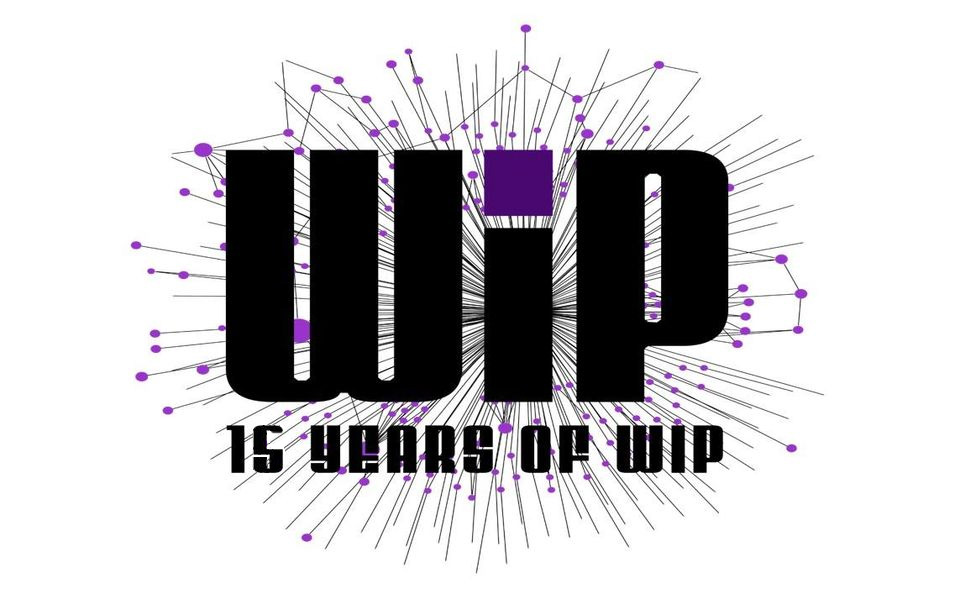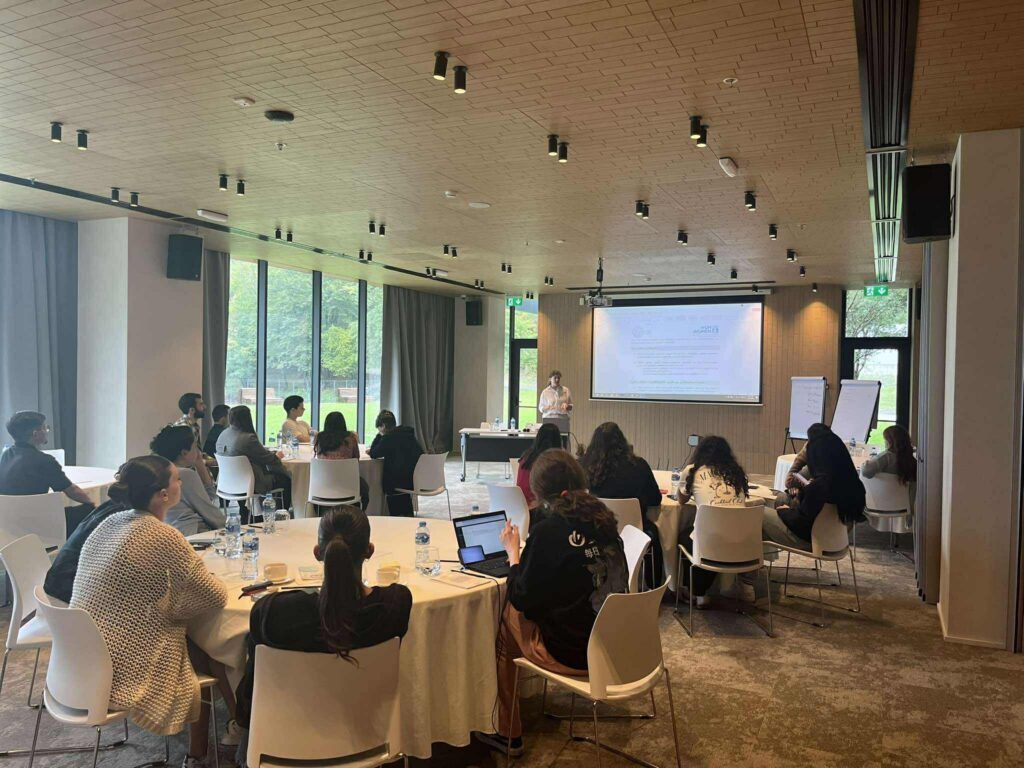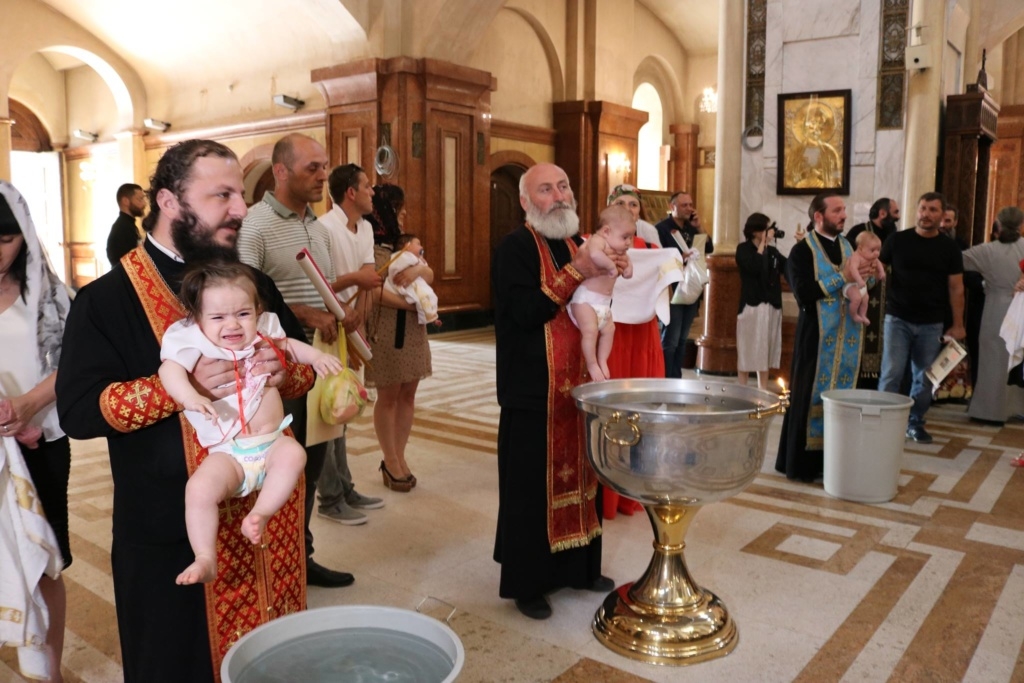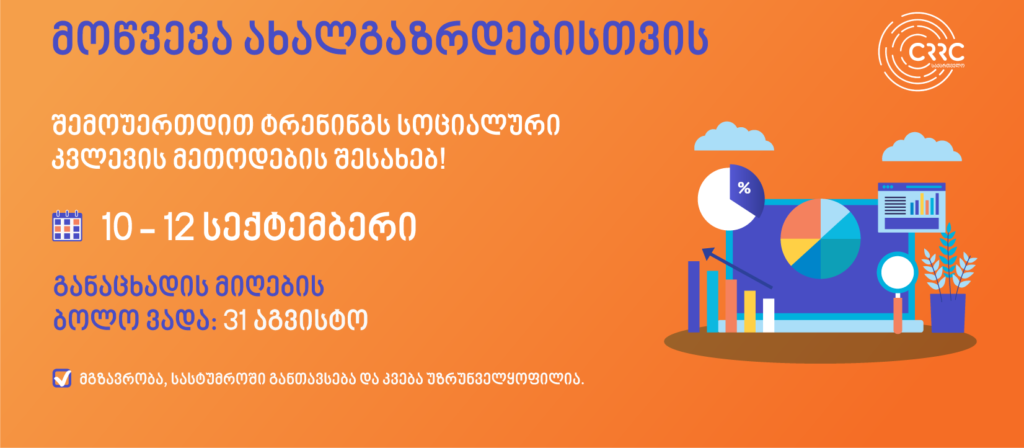Note: In the chart above, NGOs are marked with an asterisk (*).
The following chart shows the share of those who have correctly identified whether an organization was or was not an NGO. Unsurprisingly, 85% of the population is aware that the Parliament of Georgia is not an NGO, but still, 15% failed to provide a correct answer. The Georgian Young Lawyers Association (GYLA) was the second most correctly identified organization (also meaning that it is probably the most widely recognized NGO in Georgia). GYLA aside, other NGOs were correctly identified by between 30% (Identoba) and 47% (Liberty Institute) of the population. Georgians were least likely to know that USAID and British Petroleum are not NGOs.
This section of the survey had one trick question. The organization “Association of Unemployed People” does not actually exist in Georgia and was included in the list of 15 organizations to check how thoughtfully the respondents were answering the questions. The correct response in respect to this organization was “Never heard of,” and only 31% of Georgians responded so. About a third reported that it was either an NGO or not an NGO, and 36% responded “Don’t know,” a somewhat more correct answer.
Still, Georgians quite often know – and admit – that they do not know whether an organization is an NGO or not. In order to gain a better understanding of Georgians’ knowledge of NGOs, a scale was generated for this blog post based on the 15 questions discussed above. The scale ranges from -15 to 15, with -15 being an incorrect response to each of the 15 questions (equivalent to total absence of knowledge or totally inaccurate knowledge) and 15 being a correct response to every question (equivalent to very good knowledge). “Don’t know,” “Refuse to answer” and “Never heard of” responses were coded as 0, since respondents presumably were reporting accurately that they did not know or had never heard of an organization. In the case of the (non-existent) Association of Unemployed People mentioned above, the answer “never heard of” was coded as a correct response, while both “NGO” and “not an NGO” were coded as incorrect responses.
The results are positive in that, generally, while Georgians do not necessarily know a great deal about whether an organization is or is not an NGO, they do know that they don’t know this, and report accordingly. Overall, Georgians reported more correct answers than incorrect ones. The highest score on the scale was 15 (4 respondents in total) and the lowest was -8 (1 respondent), with an average score of 4.6. Approximately 4% of the population scored below 0 (meaning that their knowledge is extremely poor, even though they may think otherwise), 12% scored 0 (meaning that they report not knowing about NGOs, but are not necessarily misinformed), and 84% scored 1 or above.
Considering the above, the question who knows more and who knows less about NGOs comes to the fore. One difference that appears when looking at average scores is that those with some higher education know more about NGOs than those with either secondary technical education or secondary or lower education.
Note: The confidence intervals for the above averages are very small (with the upper and lower bounds varying from the average by <0.01), and hence are not displayed.
Age is another interesting characteristic which shows some difference between groups, although the differences by age are smaller than those by education. The most knowledgeable age group is those between the ages of 36 and 55 (average score 5.03), while the least knowledgeable age group includes those 56 years old and older (average score 4.05). The youngest age group (18-35 year olds) scores between the two, with an average score of 4.61.
This blog post has looked at knowledge of NGOs in the Georgian population. While many Georgians do not know if a large number of organizations are or are not NGOs, many also recognize this fact by saying that they have either never heard of or do not know if an institution is or is not an NGO. Moreover, more Georgians identified organizations correctly, rather than incorrectly. Those with at least some tertiary education score higher on average than those with secondary technical education, and those with secondary education or lower score the lowest.








